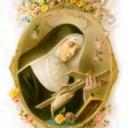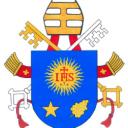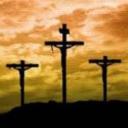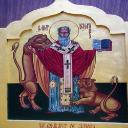Yahoo Answers is shutting down on May 4th, 2021 (Eastern Time) and beginning April 20th, 2021 (Eastern Time) the Yahoo Answers website will be in read-only mode. There will be no changes to other Yahoo properties or services, or your Yahoo account. You can find more information about the Yahoo Answers shutdown and how to download your data on this help page.
Trending News
Catholic tradition vs the Bible?
I was looking at how in a span of a little over 200 years how in America we interpret the constitution quite differently than our fore fathers; I think they would be rolling over in their graves if hey could see what has become of the US. I listen to Catholic apologist staking high credibility that the traditions began early in the 3 or 4 hundreds were began like transubstantiation....we see how the US has departed form the original intent in 200 years how can you stake your credibility on things began 300 years past the days of Jesus and the Apostles? If we anchored to scripture and did not deviate from the concept did Jesus teach it was it practiced in the book of act and did the epistles mention it; the Catholic church might still look the the church out of the book of Acts.
12 Answers
- LineDancerLv 710 years agoFavorite Answer
There are loads of Catholic tradition and doctrines that have nothing to do with the Bible, the book that Catholics claim as their book. Consider:
If the Catholic Church made the Bible, is it not strange that she failed to include any word about the assumption of Mary, her immaculate conception and about the efficacy of praying to her; about the veneration of relics, images and saints; about the use of holy water; about the ceremony of the mass; about a pope’s being the vicar of Christ; about monsignors, archbishops and cardinals; about purgatory; about a celibate clergy; about not eating meat on Friday or during Lent; about making novenas; about infant baptism; etc.? Is not the fact that the Bible is silent on all these outstanding points of the Catholic religion strong circumstantial evidence that the Catholic Church did not make the Bible? that it is not a Catholic book?
- ?Lv 710 years ago
Where the True Presence of the Holy Eucharist is, there is Jesus Christ.
Where Jesus Christ is, there is the Catholic Church.
Jesus Christ established the Catholic Church in 33AD. It was not established 3 or 4 hundred years later.
The Apostles celebrated the Sacrament of Holy Eucharist. Acts 2:46 "Day by day, attending the Temple together and breaking bread in their homes…"
The Apostles were visibly religious Jews. They wore the kippah (prayer hat), the tallit (prayer shawl with fringes) and the tephillin (phylacteries). Long after Jesus ascended to the Father, Peter protested that he had never in his life eaten anything unkosher. Acts 10:14 When these Jewish Apostles remembered Christ's command, Lk 22:19 "Do this in remembrance of Me," they added it to their synagogue worship. They began with synagogue prayer and Scripture readings, and then went to their homes to celebrate the Sacrament of Christ's Body and Blood. To this very day, the Introductory Rite and Liturgy of the Word come directly from Jewish synagogue worship. The Liturgy of the Eucharist comes directly from the Apostles' breaking bread in their homes.
"The Eucharist is not a thing. It is not a dead object.
It is Christ, and He is fully alive.
Receiving Him with this awareness, we become more fully alive,
so that we can say with St. Paul, "It is no longer I who live,
but Christ who lives in me."
Catholic Christian †
- MistyLv 710 years ago
<<I listen to Catholic apologist staking high credibility that the traditions began early in the 3 or 4 hundreds were began like transubstantiation>>
No, transubstantiation began immediately after the death of Christ. It is what Jesus talked about in John 6 and what he instituted at the Last Supper.
In 1 Corinthians 11:27-29 we read:
Therefore whoever eats the bread or drinks the cup of the Lord unworthily will have to answer for the body and blood of the Lord. A person should examine himself, and so eat the bread and drink the cup. For anyone who eats and drinks without discerning the body, eats and drinks judgment on himself.
Paul says here that if we do not discern the "Body" and receive unworthily, we drink and eat judgment on ourselves. The only way this could be true is if the bread and wine were truly the Body and Blood of Christ, that is what we are to discern.
Then the early Christian writings, in the first century confirm this belief that the Eucharist is truly the Body and Blood of Christ. Ignatius of Antioch, in his Epistle to the Smyrnaeans said:
Take note of those who hold heterodox opinions on the grace of Jesus Christ which has come to us, and see how contrary their opinions are to the mind of God ... They abstain from the Eucharist and from prayer because they do not confess that the Eucharist is the flesh of our Savior Jesus Christ, flesh which suffered for our sins and which that Father, in his goodness, raised up again. They who deny the gift of God are perishing in their disputes.107AD
Ignatius studied with John the Apostle of Christ.
So nothing has changed in the matter of doctrine. What changes sometimes is non-doctrinal disciplines and practices. There are those who had meaning at a particular time and were used for spiritual growth and devotion. But over time things change and those devotions may need to be changed to be relevant to a particular society.
- Anonymous10 years ago
They didn't start 300 post Jesus and the Apostles, Christianity (although it wasn't initially named as such ) started WITH Jesus and the Apostles. Many of the traditions were establised by the Apostles and their disciples, i.e. the early church. Many of the books of the NT were around a few hundred years before they were all complied into one volume, now known as the Bible. In fact by the end of the first century, Christianity was a recognised religion, set apart from it's founders of Judaism, and early into the second century an official church hierarchy was well establised.
- How do you think about the answers? You can sign in to vote the answer.
- cristoiglesiaLv 710 years ago
Perhaps you need to clarify your question and commentary. I am having trouble following your logic.
Are you claiming that the belief in the truly real and substantial presence of Christ in the Eucharist including His Body, Blood, Soul and Divinity started three to four hundred years after the formation of the Church? If so, that premise is blatantly and undeniably false. The teaching on transubstantiation started a year before the crucifixion of our Lord at the Synagogue in Capernaum and is recorded in John Chapter 6. It was then commanded at the Last Supper in the upper room and completed in its teaching on the cross when Jesus said that the passover is completed and the New Covenant is established with His drinking of the last cup or cup of consummation from the cross and revealed His glory with the words "It is finished" meaning the Old Covenant.
The book of Acts is about the Church and that same Church exists today as the Catholic Church with the fullness of truth and the enduring nature that Christ promised to humanity. God bless!
In Christ
Fr. Joseph
- cashelmaraLv 710 years ago
Sacred Tradition comes from Christ. It's the full, living gift of Christ to the Apostles, faithfully handed down through each generation.
It is through Tradition that the Holy Spirit makes the Risen Lord present among us, offering us the very same saving Word and Sacraments that he gave to the Apostles!
The word "tradition" actually means handing down something to another person.
Scripture testifies to this meaning of Catholic Tradition as the normal mode of transmitting the Faith:
"So then, brethren, stand firm and hold to the traditions which you were taught by us, either by word of mouth or by letter." (2 Thess 2:15)
"For I received from the Lord what I also handed on to you...." (1 Cor 11:23)
"For I handed on to you as of first importance what I also received...." (1 Cor 15:3)
"...I know whom I have believed [i.e., Jesus], and I am sure that he is able to guard until that Day what has been entrusted to me. Follow the pattern of the sound words which you have heard from me, in the faith and love which are in Christ Jesus; guard the truth that has been entrusted to you by the Holy Spirit who dwells within us." (2 Tim 1:11-14)
"You then, my son, be strong in the grace that is in Christ Jesus, and what you have heard from me before many witnesses entrust to faithful men who will be able to teach others also." (2 Tim 2:1-2)
"...I found it necessary to write appealing to you to contend for the faith which was once for all delivered to the saints." (Jude 1:3)
This is the most basic meaning of Catholic Tradition: it is the true Faith itself, given to the Apostles by Christ and faithfully transmitted to each new generation. (Catechism, 77-78)
We often write Tradition, with a capital 'T', to mean Sacred Tradition. This Catholic Tradition is different from those traditions (small 't') that are merely customs, and which are not part of Divine Revelation.
- TruthRevealedLv 510 years ago
Tradition of the Church does not conflict with the Bible. The way the Church looks different. Sure. It has to evolve. Should doctors still be practicing medicine like they were 2000 years ago? Doctrine does not change.
Transubstantiation is not Tradition. It is biblical doctrine.
The word 'to eat' in the following passage is literally 'to gnaw on' in Greek.
John 6: 51-56 “”I am the living bread that came down from heaven; whoever eats this bread will live forever; and the bread that I will give is my flesh for the life of the world." The Jews quarreled among themselves, saying, "How can this man give us (his) flesh to eat?" Jesus said to them, "Amen, amen, I say to you, unless you eat the flesh of the Son of Man and drink his blood, you do not have life within you. Whoever eats my flesh and drinks my blood has eternal life, and I will raise him on the last day. For my flesh is true food, and my blood is true drink. Whoever eats my flesh and drinks my blood remains in me and I in him.””
This was so challenging that many of Jesus disciples left him (no longer able to believe).
These two quotes come from handed down tradition because the first is from the student of the Apostle John and the second is from the student of a different student (Polycarp) of John.
"They abstain from the Eucharist and from prayer, because they confess not the Eucharist to be the flesh of our Saviour Jesus Christ, which suffered for our sins, and which the Father, of His goodness, raised up again." Ignatius of Antioch, Epistle to Smyrnaeans, 7,1 (c. A.D. 107).
"For not as common bread and common drink do we receive these; but in like manner as Jesus Christ our Saviour, having been made flesh and blood for our salvation, so likewise have we been taught that the food which is blessed by the prayer of His word, and from which our blood and flesh by transmutation are nourished, is the flesh and blood of that Jesus who was made flesh." Justin Martyr, First Apology, 66 (c. A.D. 110-165).
Source(s): If you have any other q's, email me. The Catholic Church doesn't make up doctrines. It interprets the Bible and applies it to modern concepts though (cloning, human rights, etc.). By the way the books of the Bible weren't chosen until 397 AD, so technically it is a Tradition that was not solidified until after things like Papal primacy, transubstantiation, Confession, apostolic succession, the Immaculate Conception, the Trinity, etc. were solidified. - happygaelLv 610 years ago
Our traditions are not in conflict with The Bible. Your interpretation and consequently your mistaken beliefs about our traditions are in conflict with the Bible
- MeredithLv 510 years ago
Catholics believe that the Church has authority to change beliefs and traditions. This is why Catholic belief/traditions have changed so radically since their beginning. Its also why protestants (non-catholic christians) broke off. Protestants realized how many things were changing (some in sinful ways) and didn't want to be apart of it. They wanted to go back to the bible.
Most catholic traditions came around from non-biblical sources. The confession booth came about so priests can learn secrets and use it against the congregation. The rosary was originally nothing more than a way for monks to memorize the book of Psalms.
Even the symbol of the cross has changed. Originally the cross was a symbol of sin. The cross was a symbol of 3 false pagan Gods (still used today in many pagan religions). Many think Jesus was crucified on a cross to 'mock' him because the romans thought he was a 'false god'. However the catholics changed the meaning of the cross.
Catholics back up these radical changes by saying that the church has authority to make these changes. They don't. The bible never suggests this. While the bible expects us to respect authority, and have some form of hierarchy (the world, of course, needs leaders and rulers), the bible is very clear that nobody has absolute authority but God. The church has no right to claim they have the authority to make these changes, that are not biblical in any manner.
- NaniLv 610 years ago
Yes, I agree, and as for your last sentence, I believe not only the Catholic church but all the churches that profess to be bond-servants of Jesus Christ might look quite a bit different and so would our government and government programs.










